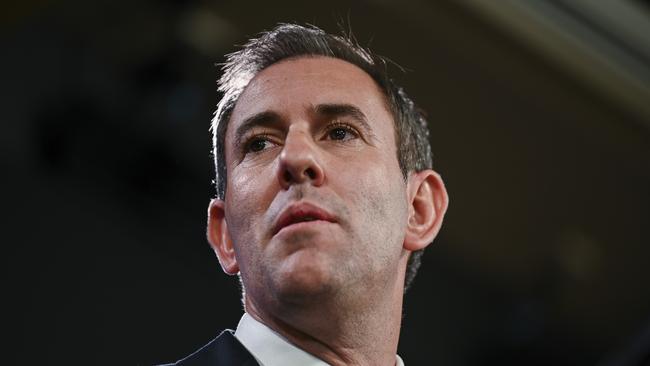Intergenerational Report: Hard choices ‘unavoidable’ as decades of deficits loom
The Intergenerational Report projects a narrowing tax base that will not keep up with surging spending pressures over coming decades.

The next generation of wage-earners will have to pay higher taxes to fund spending commitments for an ageing population, as fewer Australians smoking and the rapid take-up of electric vehicles drive down revenue from excises on tobacco and fuel.
Jim Chalmers says it will be up to future governments to grapple with thorny reforms such as road user charges to replace the collapse in fuel excise, after releasing an Intergenerational Report that projects a narrowing tax base that will not keep up with surging spending pressures over coming decades.
With personal income tax projected to blow out from 50 per cent to closer to 60 per cent of the total tax take by 2062-63, the Treasurer said politicians would also need to take steps to ease the burden on the next generation of workers.
The IGR projects 40 years of rolling deficits as the country struggles to pay for government expenses to cater for an ageing population, leaving fewer workers to fund essential services.
The IGR projects deficits will narrow into the 2030s, before expanding again from the 2040s onwards.
Rich Insights principal Chris Richardson said the message was that politicians at some point would need to make the “hard choices” to balance the books. “The squeeze is on. So far, Australia has managed OK, but the challenges continue to mount,” he told Sky News. “I would say that hard choices are unavoidable.
“If the cost of running Australia is higher than we expected – even before we add in the challenges of ageing – that says we’ve got to do something about it. You can do that by cutting some spending, you can do that by raising taxes. Most logically, anybody sensible is going to say it’s got to be some sort of a compromise to do both for it to stick.”
Speaking at the National Press Club in Canberra, the Treasurer said “obviously between next year (when the stage-three tax cuts are due to start) and 2063, governments of both political persuasions will take decisions to return some or all of the bracket creep that we’ll see in the economy”.
The IGR says “decreasing fuel excise collections over the rest of the century represents a challenge and an opportunity for policymakers around the globe”.
“Jurisdictions are investigating alternatives to charging a fuel excise. In the US, Oregon and Utah are trialling opt-in, pay-per-mile road user charge systems, which provide reduced registration fees.”
Dr Chalmers said Labor’s tax reform priorities and focus in this term were on multinational taxes, enhancing the petroleum resource rent tax, and cutting concessions for Australians with more than $3m in super.
“But I think in the next few years an increasing focus, certainly of our government and most likely governments to follow us, will be this public policy challenge, this challenge to the revenue base,” he said.




To join the conversation, please log in. Don't have an account? Register
Join the conversation, you are commenting as Logout